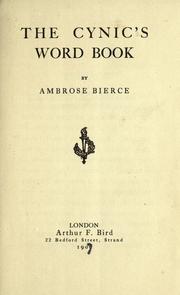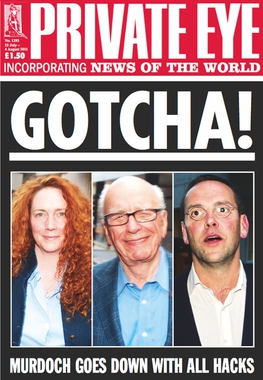
The Daleks are a fictional extraterrestrial race of extremely xenophobic mutants principally portrayed in the British science fiction television programme Doctor Who. They were conceived by writer Terry Nation and first appeared in the 1963 Doctor Who serial The Daleks, in casings designed by Raymond Cusick.

Viz is a British adult comic magazine founded in 1979 by Chris Donald. It parodies British comics of the post-war period, notably The Beano and The Dandy, but with extensive profanity, toilet humour, black comedy, surreal humour and generally sexual or violent storylines. It also sends up tabloid newspapers, with mockeries of articles and letters pages. It features parody competitions and advertisements for overpriced 'limited edition' tat, as well as obsessions with half-forgotten kitsch celebrities from the 1960s to the 1980s, such as Shakin' Stevens and Rodney Bewes. Occasionally, it satirises current affairs and politicians, but it has no particular political standpoint.
In English writing, quotation marks or inverted commas, also known informally as quotes, talking marks, speech marks, quote marks, quotemarks or speechmarks, are punctuation marks placed on either side of a word or phrase in order to identify it as a quotation, direct speech or a literal title or name. Quotation marks may be used to indicate that the meaning of the word or phrase they surround should be taken to be different from that typically associated with it, and are often used in this way to express irony. They are also sometimes used to emphasise a word or phrase, although this is usually considered incorrect.
News style, journalistic style, or news-writing style is the prose style used for news reporting in media, such as newspapers, radio and television.

In typography, emphasis is the strengthening of words in a text with a font in a different style from the rest of the text, to highlight them. It is the equivalent of prosody stress in speech.
An advertorial is an advertisement in the form of editorial content. The term "advertorial" is a blend of the words "advertisement" and "editorial". Merriam-Webster dates the origin of the word to 1946.

John Birt, Baron Birt is a British television executive and businessman. He is a former Director-General (1992–2000) of the BBC.

The Devil's Dictionary is a satirical dictionary written by American journalist Ambrose Bierce, consisting of common words followed by humorous and satirical definitions. The lexicon was written over three decades as a series of installments for magazines and newspapers. Bierce's witty definitions were imitated and plagiarized for years before he gathered them into books, first as The Cynic's Word Book in 1906 and then in a more complete version as The Devil's Dictionary in 1911.

Your Sinclair, or YS as it was commonly abbreviated, was a commercially published and printed British computer magazine for the Sinclair range of computers, mainly the ZX Spectrum. It was in circulation between 1984 and 1993.
Digitiser was a video games magazine that was broadcast on Teletext in the UK between 1993 and 2003. It originally billed itself as "The World's Only Daily Game Magazine".

Total Film is a British film magazine published 13 times a year by Future Publishing. The magazine was launched in 1997 and offers a cinema, DVD and Blu-ray news, reviews, and features. Total Film is available both in print and interactive iPad editions.

A typographical error, also called a misprint, is a mistake made in the typing of printed or electronic material. Historically, this referred to mistakes in manual typesetting. Technically, the term includes errors due to mechanical failure or slips of the hand or finger, but excludes errors of ignorance, such as spelling errors, or changing and misuse of words such as "than" and "then". Before the arrival of printing, the copyist's mistake or scribal error was the equivalent for manuscripts. Most typos involve simple duplication, omission, transposition, or substitution of a small number of characters.

An advice column is a column in a question and answer format. Typically, a reader writes to the media outlet with a problem in the form of a question, and the media outlet provides an answer or response.

In graphic design, a pull quote is a key phrase, quotation, or excerpt that has been "pulled" from an article and used as a page layout graphic element, serving to entice readers into the article or to highlight a key topic. It is typically placed in a larger or distinctive typeface and on the same page. Pull quotes are often used in magazine and newspaper articles, annual reports, and brochures, as well as on the web. They can add visual interest to text-heavy pages with few images or illustrations.
Quotation marks are punctuation marks used in pairs in various writing systems to identify direct speech, a quotation, or a phrase. The pair consists of an opening quotation mark and a closing quotation mark, which may or may not be the same glyph. Quotation marks have a variety of forms in different languages and in different media.
The fortnightly British satirical magazine Private Eye has long had a reputation for using euphemistic and irreverent substitute names and titles for people, groups and organisations and has coined a number of expressions to describe sex, drugs, alcohol and other aspects of human activity. Over the years these names and expressions have become in-jokes, used frequently in the magazine without explanation. Some have passed into general usage and can be found in other media and everyday conversation.
"As I Please" was a series of articles written between 1943 and 1947 for the British left-wing newspaper Tribune by author and journalist George Orwell.
Mad is known for many regular and semi-regular recurring features in its pages.
Musical quotation is the practice of directly quoting another work in a new composition. The quotation may be from the same composer's work (self-referential), or from a different composer's work (appropriation).

Private Eye is a British fortnightly satirical and current affairs news magazine, founded in 1961. It is published in London and has been edited by Ian Hislop since 1986. The publication is widely recognised for its prominent criticism and lampooning of public figures. It is also known for its in-depth investigative journalism into under-reported scandals and cover-ups.










